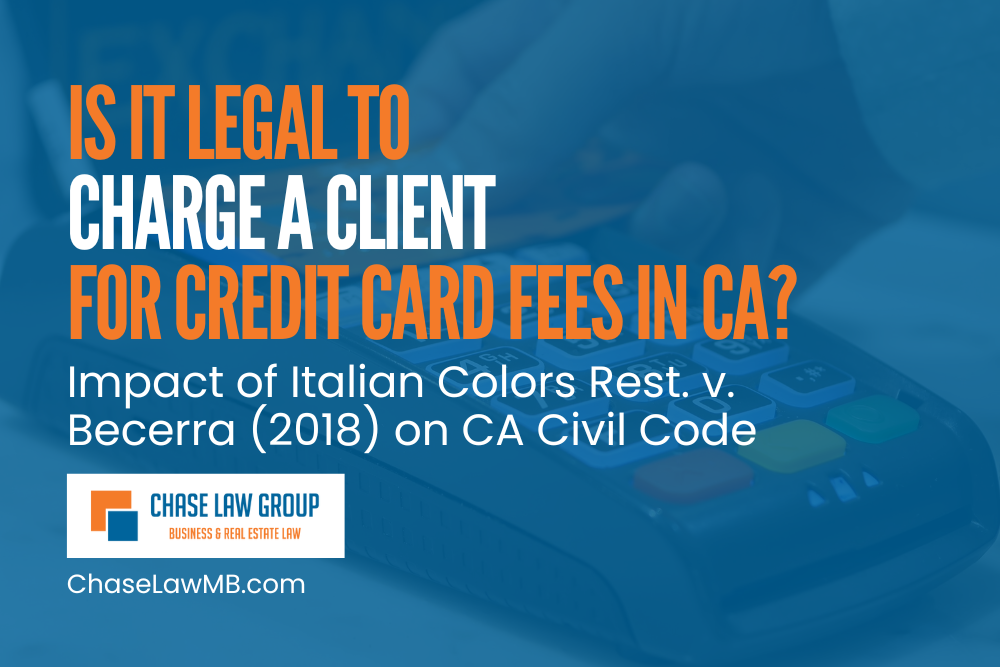Is it Legal to Charge a Client For Credit Card Fees in California?
By Admin June 14, 2023 Category: Business Law Tags: Business Compliance Business Lawyer Business Owners business protection business risk management charging client credit card fees chase law chase law group chase law manhattan beach credit card fees credit card fees california deann chase Legal Protection los angeles business attorney Small Business Advice small business law

As a small business owner, it’s essential to understand the legalities surrounding credit card fees to avoid any potential legal issues with your clients. Recently, a question was raised where a client was charged for credit card fees and the client claimed that it is illegal to charge for those fees in California. Here’s the background and how it may apply to your business.
While the California Civil Code Section 1748.1 prohibits retailers, including service providers, from imposing surcharges on customers who choose to pay with a credit card, it also allows retailers to offer discounts to encourage payment by cash, check, or other means.
The 2018 case of Italian Colors Rest. v. Becerra challenged the California Civil Code and ruled that Code Section 1748.1 violated the First Amendment rights of retailers concerning commercial speech. While Section 1748.1 is still on the books, the California Attorney General follows the Italian Colors case in its position on credit card surcharges. The California Attorney General also warns that merchants are still barred from misleading customers, such as by falsely advertising a lower price than they actually charge or hiding any differences between credit card, debit card, and cash prices.
What this means is…
Retailers ARE permitted to charge extra for credit card fees SO LONG AS the fees are clearly disclosed before being charged and are applied uniformly to all customers. If a business chooses to charge credit card fees, they must do so for all credit card transactions, without exceptions.
Businesses should also ensure that they clearly disclose the existence and amount of credit card fees to their customers before charging them. This can be done by prominently displaying fee information on invoices, on their website and at the point of sale. Clear disclosure helps customers make informed decisions and avoids any surprises or misunderstandings, and being transparent about credit card fees helps businesses foster trust and maintain positive customer relationships.
While this case is specific to credit card fees, businesses should also understand other applicable laws and regulations concerning consumer protection and requirements set forth by credit card companies and payment processors.
As new court cases are brought forward, they can have an impact on Civil Code so this is why it’s always a good idea to ask your business attorney for clarity. The law constantly evolves and changes in its application to your business.
If you have specific concerns or questions regarding your business credit card fee practices, it is advisable to consult with Chase Law Group. Legal professionals can provide guidance tailored to your business’s unique circumstances, based on relevant laws and regulations.
Please note that this article is for informational purposes only and should not be considered legal advice. It is recommended to consult with an attorney for specific legal guidance pertaining to your business and its practices.

